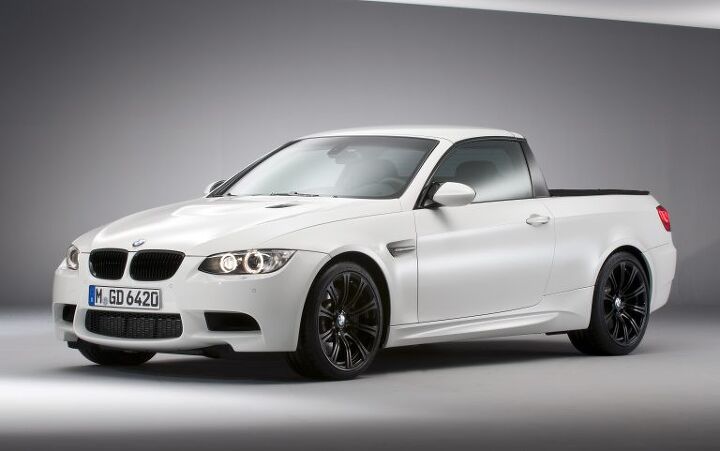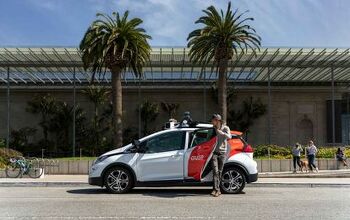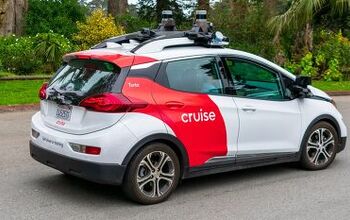BMW 'Cannot Neglect' the Truck Segment Any Longer

With Mercedes-Benz entering the pickup market with its new X-Class, BMW has admitted it may be time to did the same. To be clear, it wasn’t the home office that made this assertion. It was head of BMW Australia Marc Werner.
Aussies love their pickups or, more appropriately, its smaller, low-riding counterpart, affectionately called a “ute.” If you’re unfamiliar with the vehicle category, you probably don’t spend a lot of time in Australia or New Zealand. Bastardized from the term “coupé utility,” the ute moniker used to be reserved for models like the Ford Ranchero or Chevrolet El Camino. The term has since expanded to mean any non-gargantuan pickup truck and has roots going back to the 1930s.
At any rate, Werner says BMW needs to build one and the executive is pushing Germany to get the show on the road. Unfortunately for Warner, Bavaria’s receptiveness toward the segment has been mixed, to say the least. BMW senior vice president Hendrik von Kuenheim called Mercedes’ upcoming X-Class “appalling.” However, he appeared to be speaking more to the perceived subpar quality of the Nissan Navara-based pickup and not the concept itself.
BMW has even built a couple of pickups based on the M3. The first vehicle ended up being a factory parts hauler from 1986 to 1998 and the second turned out to be an elaborate April Fools’ prank from 2011. That’s unfortunate, as BMW’s comedy routine was capable of a claimed 186 mph and ended up being 150 pounds lighter than car it was based on.
Werner doesn’t see it as a joke, however. He believes it’s a segment BMW should be exploring, lest it be left in a cloud of some other automaker’s dust. “We have been very pushy regarding utes or pick-ups, and we believe that this is something the company should be looking into,” he told CarAdvice at the launch of the X2. “We have raised that with headquarters and certainly investigations are happening as we speak, but it’s too early to speak about the results of that analysis, but if there was a ute we would certainly take it.”
“We cannot close our eyes and neglect it, we cannot neglect market trends,” Werner explained. “If you look at the market, more than 150,000 Utes [were sold last year], out of 1.1 m cars overall and I think that that segment grew last year by 17 percent.”
Unfortunately, von Kuenheim previously stated that a pickup is not a priority while BMW furthers its hybrid technology and sets itself up for more electric cars. As he sees it, pickup profitability wouldn’t match electrification for a high-end brand. But Werner believes otherwise, stating that people said the same thing about SUVs and noting X-badged vehicles now account for the majority of the brand’s global sales.
Furthermore, Mercedes-Benz clearly saw an opportunity for itself with the X-Class. Truck sales are strong right now and appear to be on the rise around the globe, something that clearly helped encourage Ford’s relaunch of the Ranger in North America. While Mercedes didn’t see the X-Class as a good fit for Yankees (especially if they aren’t building in-country) or Canucks, that doesn’t mean it won’t eventually immigrate.
Assuming BMW did decide to build a truck, it could even follow its German rival’s lead and adopt something from another automaker while addressing von Kuenheim’s concerns that it would have to feel and “drive like a typical BMW.” The brand’s joint development with Toyota of the Supra/Z4 is apparently doing just that. In fact, Toyota Hilux seems like the ideal ute candidate and the Germans could theoretically tweak it to adhere to von Kuenheim’s specifications with modest effort. Because, let’s face it, it’s not 1996 anymore and the “typical BMW” is an SUV.
[Images: BMW]

A staunch consumer advocate tracking industry trends and regulation. Before joining TTAC, Matt spent a decade working for marketing and research firms based in NYC. Clients included several of the world’s largest automakers, global tire brands, and aftermarket part suppliers. Dissatisfied with the corporate world and resentful of having to wear suits everyday, he pivoted to writing about cars. Since then, that man has become an ardent supporter of the right-to-repair movement, been interviewed on the auto industry by national radio broadcasts, driven more rental cars than anyone ever should, participated in amateur rallying events, and received the requisite minimum training as sanctioned by the SCCA. Handy with a wrench, Matt grew up surrounded by Detroit auto workers and managed to get a pizza delivery job before he was legally eligible. He later found himself driving box trucks through Manhattan, guaranteeing future sympathy for actual truckers. He continues to conduct research pertaining to the automotive sector as an independent contractor and has since moved back to his native Michigan, closer to where the cars are born. A contrarian, Matt claims to prefer understeer — stating that front and all-wheel drive vehicles cater best to his driving style.
More by Matt Posky
Latest Car Reviews
Read moreLatest Product Reviews
Read moreRecent Comments
- SCE to AUX Sure, give them everything they want, and more. Let them decide how long they keep their jobs and their plant, until both go away.
- SCE to AUX Range only matters if you need more of it - just like towing capacity in trucks.I have a short-range EV and still manage to put 1000 miles/month on it, because the car is perfectly suited to my use case.There is no such thing as one-size-fits all with vehicles.
- Doug brockman There will be many many people living in apartments without dedicated charging facilities in future who will need personal vehicles to get to work and school and for whom mass transit will be an annoying inconvenience
- Jeff Self driving cars are not ready for prime time.
- Lichtronamo Watch as the non-us based automakers shift more production to Mexico in the future.





































Comments
Join the conversation
SS(r)?
I get that the truck market is hot, but what about the Euro-branded luxury truck market? Not so much. Stick to what you're good at, BMW.